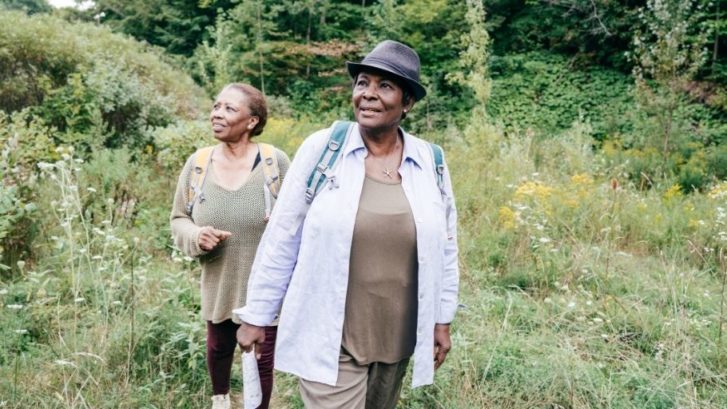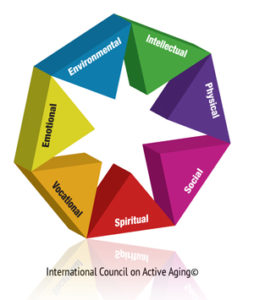Heading for retirement?
Heading for retirement?
A psychiatrist’s advice for maintaining wellbeing
Netcare Akeso – Media Release
Taking an active interest in maintaining general health and wellbeing in one’s golden years should include paying close attention to the connection between mental and physical health, memory and social connectedness.
This is according to Dr Ryan Fuller, a psychiatrist specialising in geriatric mental health – or mental health of the aged – and practising at the Memory Care units at Netcare Akeso Alberton and Netcare Akeso Parktown, who says that while retirement is intended to be a period of relaxation, this major life change can in fact be an enormous stressor, possibly triggering a decline in one’s mental as well as physical health.
“When people retire they often experience what we call existential angst, feeling a sense of dread brought on by what they may view as a loss of identity. It is also unfortunately the case that few people plan adequately for retirement, which contributes towards stress levels,” Dr Fuller says.
“We see a significant increase in the mortality rate amongst retired men in particular, who tend to experience weakened immune systems and whose physical health may deteriorate when they stop working. It is often recommended that men should not retire fully for this reason.”
Dr Fuller notes that physical factors such as chronic diseases including high blood pressure or diabetes can also contribute towards mental health concerns by placing individuals at risk of vascular dementia, brought on by damage to the brain’s blood vessels caused by a stroke, for example.
“The best thing you can do for yourself in your golden years is to commit to making consistent daily efforts in maintaining a lifestyle which supports overall health and wellbeing,” he says.
What’s good for the heart is good for the brain
Fuller’s advice is to keep it simple and stick to the basics of good health.
“What is good for the heart is also good for the brain, so if you are eating healthily, being physically active, getting enough sleep, limiting alcohol intake and avoiding smoking, you are working from a good baseline. Simply going for a 20 minute walk each day has been shown to benefit every aspect of your health, provided you are walking somewhere safe.
“When it comes to nutrition, eating a Mediterranean diet that includes plenty of fresh fruit and vegetables, healthy fats, whole grains and very little red meat is by far the most sensible way to look after your heart. Regular hydration is essential and is often a problem area amongst elderly individuals, who may have mobility issues and therefore avoid drinking to limit visits to the bathroom. This is not a good idea, as it is vital to drink at least 1.5L to 2L of hydrating fluid daily. This also means avoiding too much caffeine as this is a diuretic.
Stay busy, keep learning and be social
For boosting the mind, Dr Fuller advises keeping a hand written diary, as the process of writing is good for memory. “Engaging in activities such as knitting or needlework, adult colouring books, listening to your favourite music, doing puzzles, sudoku and word searches are all good for cognition. It is very important to try new things such as learning a language or skill to continue cognitive development,” he says.
“Keep things short and sweet – you need spend no more than 15 to 20 minutes on such tasks. It is important that you enjoy what you are doing and that you don’t find it stressful. Playing Bridge is one of the best things you can do for your mind as this includes a social element as well. Getting out into the world and socialising in person is an important form of cognitive stimulation and highly beneficial for mental health.
“For those who enjoy short bursts of digital interaction there are some useful apps available, such as Lumosity for cognitive exercise and Calm for helping with stress and sleeping, though too much screen time is not advisable, as an excess of blue light can cause insomnia.
“On that note, it is important to get enough uninterrupted sleep without the use of sleeping pills, as long term use of this type of medication is a risk factor for dementia. Exercise and cognitive activity during the day are important for becoming naturally tired and ready to sleep at night.
“Freud said that to be happy, humans need someone to love, to be loved and something to do. Jung took this one step further by saying that what we do must be meaningful – whether this is in a spiritual or personal sense, it must generate some kind of personal satisfaction.
“Paying attention to mental health should be a part of daily life, no matter your age, and it is certainly an important aspect of ageing well. Just as you practice habits like flossing your teeth, you should do daily mental exercises. And just as you would visit your GP for any physical concerns, it is important to be proactive and reach out for mental help when going through a stressful time or a major life change, such as retirement,” concludes Dr Fuller.




